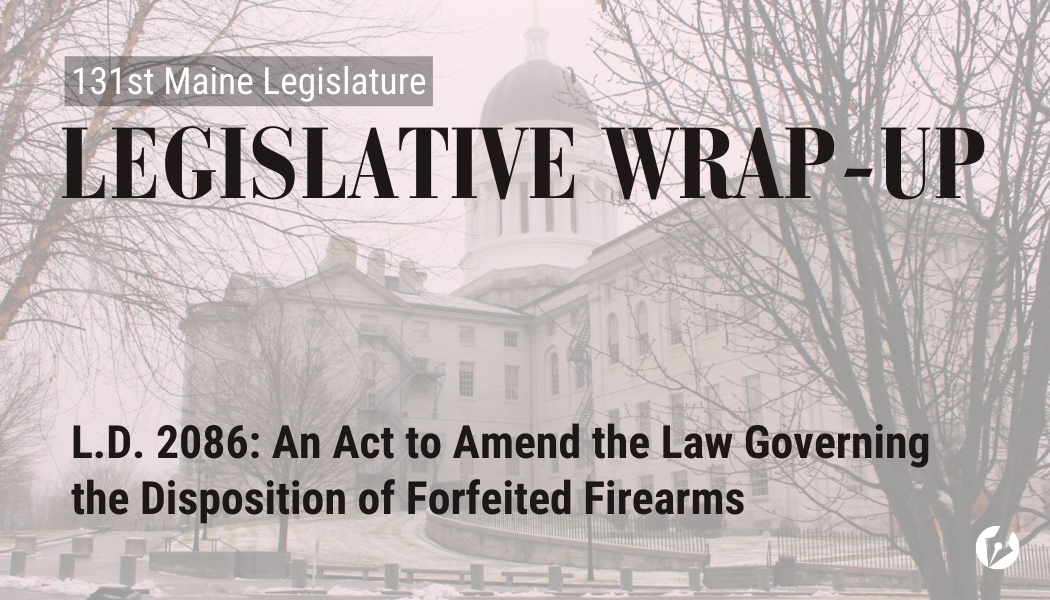A bill from Sen. Anne Carney (D-Cumberland) makes it so that all forfeited firearms — not just those used in a murder or unlawful homicide — must be destroyed, but maintains an exception for rightful owners of a firearm not involved in a crime.
A Maine Monitor investigation found that guns sent to be destroyed are often disassembled and resold as parts kits, a process that relies on a loophole in federal regulations. The bill does not define how a firearm must be destroyed.
The bill, via an amendment by the judiciary committee, also bans bump stocks — devices attached to firearms that rapidly increase the rate of fire, by expanding the definition of “machine gun.” Machine guns are banned in Maine, except for use by law enforcement and military personnel.
Bump stocks have been banned nationally since March 2019, when a federal Bureau of Alcohol, Tobacco, Firearms and Explosives rule went into effect. The Justice Department issued the ruling in response to the 2017 mass shooting in Las Vegas, in which the shooter used semi-automatic rifles equipped with bump stocks. The rule is before the Supreme Court.
L.D. 2086 is one of several bills introduced this legislative session addressing gun violence in the wake of the Lewiston shooting that left 18 dead. The shooter used a semi-automatic rifle, according to Maine State Police.
The bill as amended passed in both houses and was sent to Gov. Janet Mills for her signature.
Read the full bill on the legislature’s website.
To get a sense of the debate, here are some excerpts from testimony:
For:
“As I witnessed in the minutes following the shooting in Lewiston, the entry wound of a large-caliber, high-velocity bullet looks relatively similar to other gunshot wounds I’ve seen in my career. But the gruesome exit wounds illustrate the destruction they cause as they course through the human body — and provide an explanation for why more than half of those shot in the Lewiston tragedy never even made it to our hospital and died at the scene.” ~ Dr. Joe Anderson, Maine Chapter of the American Academy of Pediatrics
“We should not wait for another gun violence tragedy in our great state of Maine to make moves to reduce in any way the potential for harm to our fellow community members.” ~ Tory Dietel Hopps, Cumberland
“There is no need in a democratic society, or any society, for the ownership of assault-style weapons of war by the public. Their presence has left so many people without their loved ones, and with the grim task of identifying loved ones after their bodies were shattered by such weapons.” ~ Christine Dyke, Gorham
Against:
“In both the hunting and sport shooting communities, many owners make or buy modifications to tailor the gun to the use they purchased it for … The amendment would make every one of them liable to be arrested and/or their property confiscated even though they never committed or ever had any intent to commit a crime.” ~ Bruce Ashmore, Bucksport
“The attempt to change the definition of a machine gun to be anything you feel it is is an overreach of government and will only prohibit law-abiding citizens from their state and federally protected constitutional rights.” ~ Catherine Gilley, Harpswell
“While this bill summary purports to fix issues with the law, it actually does the opposite. Instead of the legal owner of the firearm simply being required to having a right to possess the firearm, it changes the language to specify that the firearm had to have been stolen. How is this fair to the owner who was not involved in any way?” ~ Jonathan Martell, Sanford







